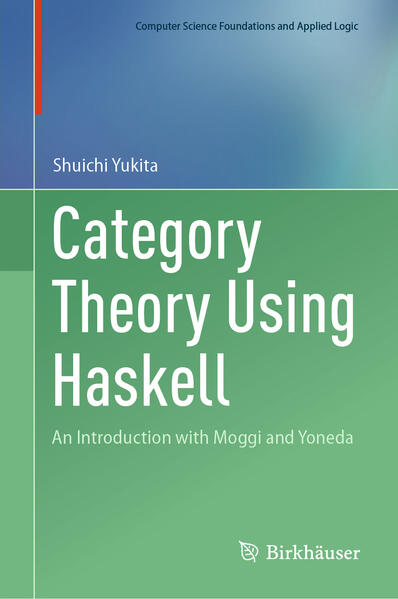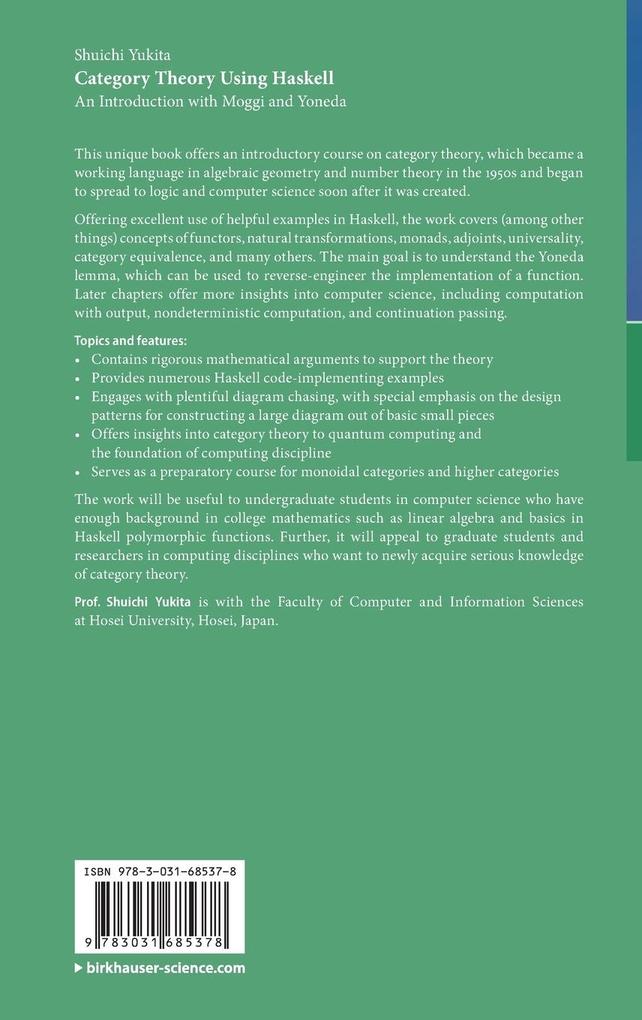
Zustellung: Sa, 26.07. - Mi, 30.07.
Versand in 7 Tagen
VersandkostenfreiBestellen & in Filiale abholen:
This unique book offers an introductory course on category theory, which became a working language in algebraic geometry and number theory in the 1950s and began to spread to logic and computer science soon after it was created.
Offering excellent use of helpful examples in Haskell, the work covers (among other things) concepts of functors, natural transformations, monads, adjoints, universality, category equivalence, and many others. The main goal is to understand the Yoneda lemma, which can be used to reverse-engineer the implementation of a function. Later chapters offer more insights into computer science, including computation with output, nondeterministic computation, and continuation passing.
Topics and features:
- Contains rigorous mathematical arguments to support the theory
- Provides numerous Haskell code-implementing examples
- Engages with plentiful diagram chasing, with special emphasis on the design patterns for constructing a large diagram out of basic small pieces
- Offers insights into category theory to quantum computing and the foundation of computing discipline
- Serves as a preparatory course for monoidal categories and higher categories
The work will be useful to undergraduate students in computer science who have enough background in college mathematics such as linear algebra and basics in Haskell polymorphic functions. Further, it will appeal to graduate students and researchers in computing disciplines who want to newly acquire serious knowledge of category theory.
Inhaltsverzeichnis
1. Catetory, Functor, Natural Transformation. - 2. Equivalence of categories. - 3. Universality and Limits. - 4. Functors and Limits. - 5. Adjoints. - 6. Monads. - 7. Representable Functors.
Produktdetails
Erscheinungsdatum
07. Dezember 2024
Sprache
englisch
Seitenanzahl
312
Reihe
Computer Science Foundations and Applied Logic
Autor/Autorin
Shuichi Yukita
Verlag/Hersteller
Produktart
gebunden
Abbildungen
XI, 297 p. 48 illus., 2 illus. in color.
Gewicht
633 g
Größe (L/B/H)
241/160/23 mm
ISBN
9783031685378
Entdecken Sie mehr
Bewertungen
0 Bewertungen
Es wurden noch keine Bewertungen abgegeben. Schreiben Sie die erste Bewertung zu "Category Theory Using Haskell" und helfen Sie damit anderen bei der Kaufentscheidung.










